One of the questions that vegans are often asked is “can you eat honey”? And it’s certainly a question that has sparked a lot of debate. In this article, we look at the issue from both sides, to finally give an answer to the question is honey vegan. But first, let’s take a look at the fascinating story of how honey is produced.
How is honey made?
There are over 20,000 species of bee worldwide but only eight of those species are honey bees. Two of those species, the western honey bee, and the eastern honey bee, have been domesticated to produce honey for humans. Honey bees live in large groups called colonies and built big nests out of wax.
For food, bees gather nectar, a sugary liquid, from plants that are flowering. To provide sustenance during the long winter months when flowering plants are scarce, some of the nectar is transformed into honey. To do this, bees put nectar in their extra stomach (called a “crop”), where it mixes with enzymes that change its chemical form and make it suitable to be stored through the winter.
The process has not finished there though. To transform the nectar in the crop into honey requires it to be passed from bee to bee by repeated regurgitations. In other words, the bees take it in turns to vomit up the nectar and pass it on to each other.
Even when the nectar is deposited by the last bee into the honeycomb, a long process of “farming” is required to remove excess water and create honey. Finally, the bee seals the honeycomb with some liquid, which eventually hardens into wax (which, incidentally, is why vegans also avoid products, such as candles, made from beeswax).
Bees have been producing honey for over 200 million years, well before our modern human species evolved. Evidence of human consumption of honey goes back long into our past as hunter-gatherers, and it remains a popular food amongst virtually all remaining hunter-gatherer tribes in warm climates.
As a form of food, honey is used in baking, cooking, making desserts, as a sweetener in drinks, and as a spread on bread. It is also used to make mead, an ancient alcoholic drink that is made by fermenting honey with yeast.
Humans are not the only animals that seek to take advantage of the bees’ honey-producing efforts. Honey bears and badgers have also been known to risk the stings to get their hands on the sweet, sticky substance.
However, perhaps honey doesn’t sound so appetizing after having heard exactly how it’s produced? But what is certain is that the process shows how valuable honey is to bees, and why most vegans believe it is not appropriate to take it.
So, why is honey not vegan?
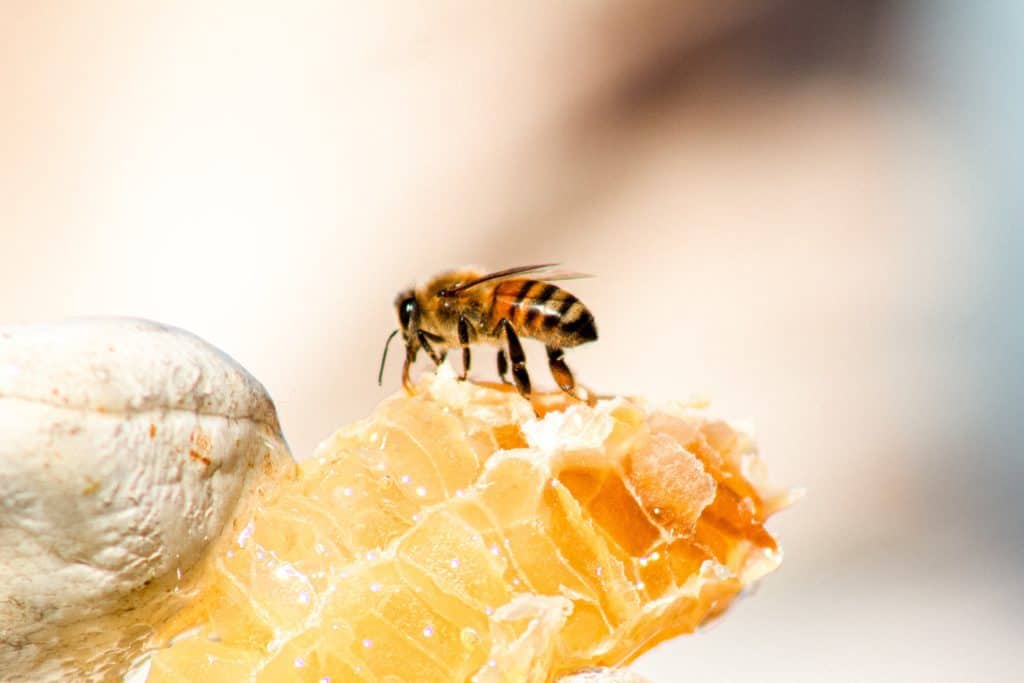
For most vegans, the answer to the question of whether they can eat honey is a simple “no”. To understand why we need to look at the definition of veganism as given by the Vegan Society UK (the oldest vegan group in the world):
“Veganism is a philosophy and way of living which seeks to exclude—as far as is possible and practicable—all forms of exploitation of, and cruelty to, animals for food, clothing or any other purpose.”
So, how does this relate to honey? Well, as described above, honey is made by an animal (the honey bee) to provide food for itself. Therefore, most vegans see taking honey from the bees as a form of animal exploitation and, therefore, not vegan.
On the question of honey specifically, the Vegan Society says:
“Honey is made by bees for bees, and their health can be sacrificed when it is harvested by humans. Importantly, harvesting honey does not correlate with The Vegan Society’s definition of veganism, which seeks to exclude not just cruelty, but exploitation.”
Why do some people claim that honey is vegan?
Various arguments have been put forward by people who are vegan but want to keep on eating honey. The most basic one seems to be that insects, such as honey bees, are not covered by the definition of veganism that forbids animal exploitation. Sure, insects may not be as complex creatures as some of the large mammals that veganism seeks to protect, but they are certainly still animals by any definition, so that argument seems rather weak.
A more interesting argument is the claim that bees produce more honey than they need. According to the British Beekeepers Association, “strong colonies” can make 2-3 times more honey than they require. However, it is very difficult to determine whether a particular colony is producing more than it needs, and the same association recommends that beekeepers should supplement their colonies’ diet with syrup to make up for the honey that they have removed.
Most vegans would think it wrong to deprive an animal of its own natural food that it has made and replace it with an inferior substitute. Giving bees honey substitutes deprives them of the nutrients they need and may weaken their immune systems.
Practitioners of so-called “balanced beekeeping” at least try to only take excess honey produced (even though that’s almost impossible in practice). However, the vast majority of the honey produced and sold in the world is produced by industrialized farming methods. As with any other animal industry, such types of beekeeping involve exploitation and cruelty.
Some beekeepers artificially inseminate queen bees or clip their wings to stop them from following their natural instinct to leave and create a new colony. Other practices include trying to cut costs by feeding the bees sugar water (to make up for stealing their honey) or culling the hive after having taken the honey.
The industrialized farming of honey bees has also been linked to negative environmental impacts. Everyone knows that bees play a key role in pollinating plants but some researchers have claimed that overly large honeybee colonies are having a detrimental effect on wild bees by monopolizing the available pollen and passing on pathogens that have developed in the colony.
A diverse range of bees are needed to pollinate a diverse range of plants, and if one species (i.e., the honeybee) becomes dominant that can have a negative effect on the ecosystem as a whole.
Finally, some beekeepers claim that it is possible to extract honey without harming bees. The trouble this requires is something that industrialized operations are highly unlikely to bother with, as it would eat into their profits.
However, some gentler beekeepers do try to extract the honey with minimal harm. They still use smoke to pacify the bees, however, and the damage that this might do is unknown. It is also uncertain whether they do damage when putting their gloved hands into the hive to extract the honey. Even if such means don’t harm bees, they do still raise the problem discussed above of taking the honey that the bees have made without knowing whether it is truly excess or not.
What about raw honey?
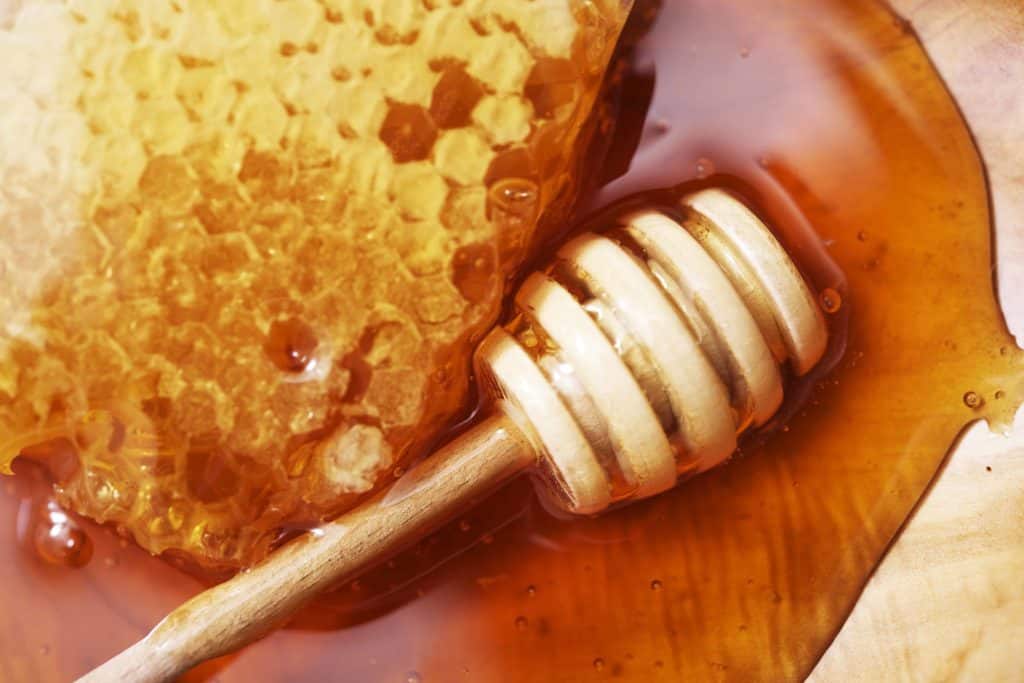
Raw honey is simply honey as it comes out of the beehive, without undergoing the processes of pasteurization and filtration that regular honey goes through. So, is raw honey vegan? No, for the same reasons given above. It is not the processing that makes honey unsuitable for vegans. It is not suitable simply because it comes from an animal and taking it from that animal is exploitation. That argument applies to raw honey just as much as it applies to regular honey.
Is mānuka honey vegan?
Mānuka honey is a type of honey that comes from the mānuka tree, which is found in New Zealand and Australia. Numerous health benefits have been claimed for mānuka honey. However, its production process still involves bees, European honey bees to be precise, therefore it is still not vegan for the same reasons as all the other types of honey discussed in this article.
Is there vegan honey?
As the arguments above have shown, honey cannot be considered vegan. However, there are lots of equally delicious plant-based alternatives, making you wonder why people even need to debate the honey issue so much.
Take agave nectar, for example, extracted from a plant that grows mainly in South Africa and Mexico. Or maple syrup, which comes from the sap of red, black, or sugar maple trees. Although you do have to be a bit careful with maple syrup as some varieties of it use animal fats, or other animal-derived products, in their production processes.
Other options include coconut nectar, rice syrup, date syrup, barley malt syrup, or “Bee-Free Honee”, which is a plant-based brand making a honey substitute from a combination of cane sugar with apple and lemon juice. Finally, what about blackstrap molasses? Equally sticky and sweet, this by-product of sugar production also comes with an enormous extra hit of iron.
In summary
So, what does it all mean? The question of whether vegans can eat honey or not has certainly caused a lot of debate. Some beekeepers do try to reduce the harm that they do to bees, but the vast majority of honey in the world is produced by industrialized methods that are certainly harmful.
The most important point in the debate is that honey is produced by an animal for itself to eat. Therefore, there seems to be little doubt that taking it away from that animal for the benefit of humans is a form of exploitation. Therefore, honey is not vegan. And with so many delicious alternatives available, it should be simple for any honey-lovers who are going vegan to find a suitable substitute.
We hope you’ve found this article helpful. Please feel free to leave your thoughts on the “is honey vegan” debate in the comments below.


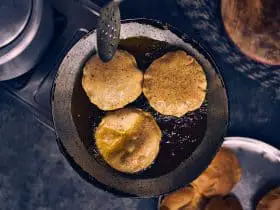
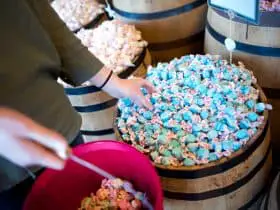
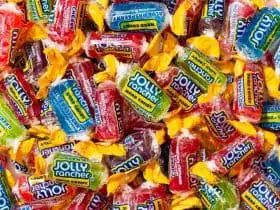
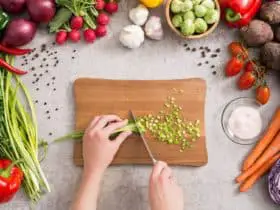
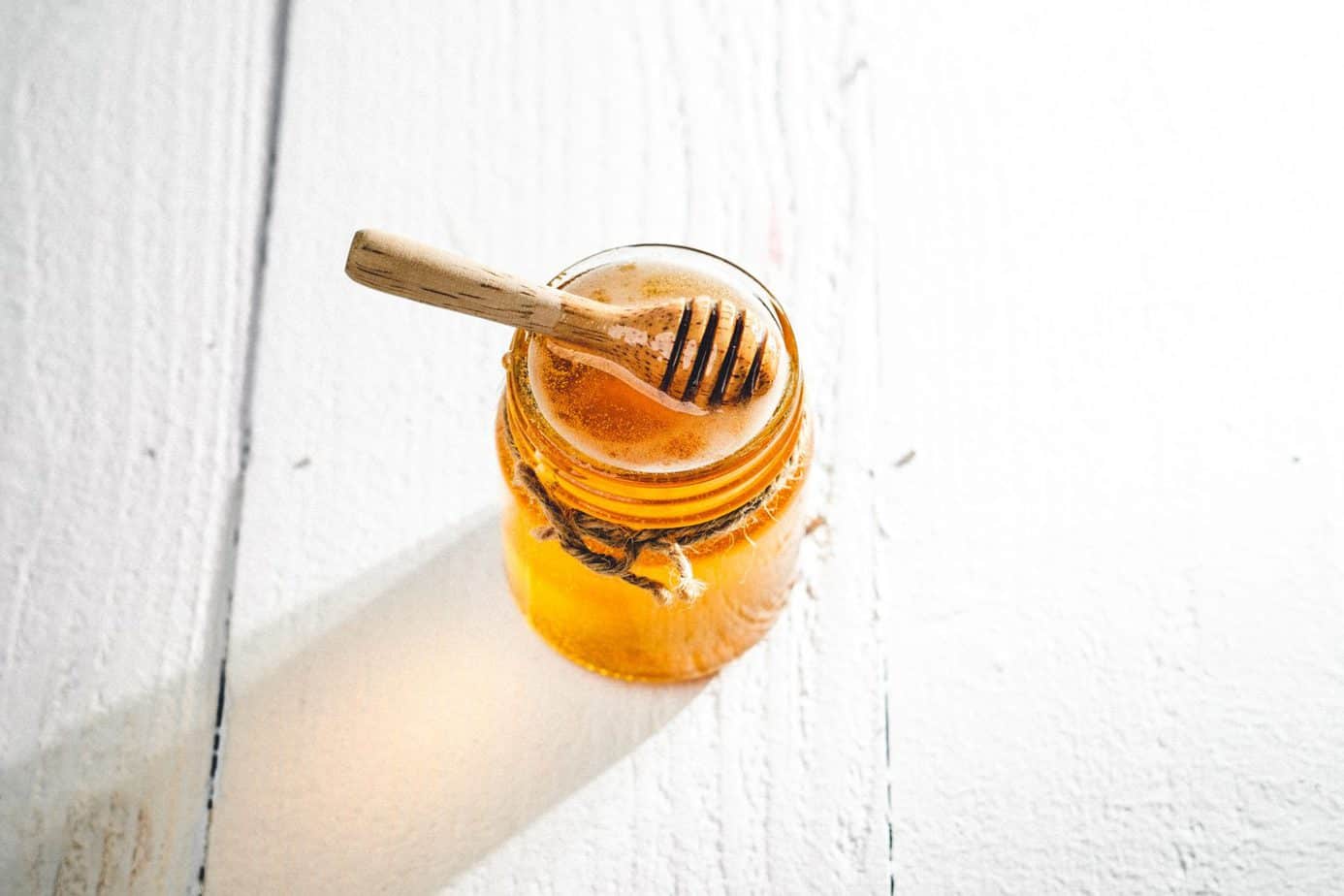

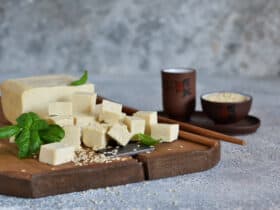
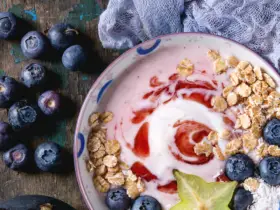
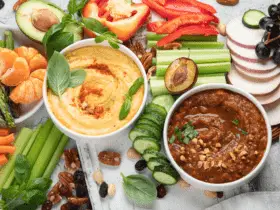
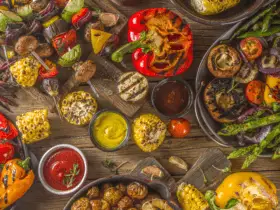
I am a vegan and also a beekeeper. Eating honey and supporting local bee keepers is vital to the health and well being of bee colonies. I believe that if vegans actually cared about their lifestyle they would understand that eating local honey is vital to the bees. They make way more than they need and It’s not like they are being held against their will to make honey. Wayyyyy more bees are saved than are harmed in then upkeep and production of local hives. I take every precaution possible to make sure as few bees as possible are harmed in harvest. Once vegans understand that eating local honey actually helps the bee population, this whole “honey isn’t vegan” nonsense will end.